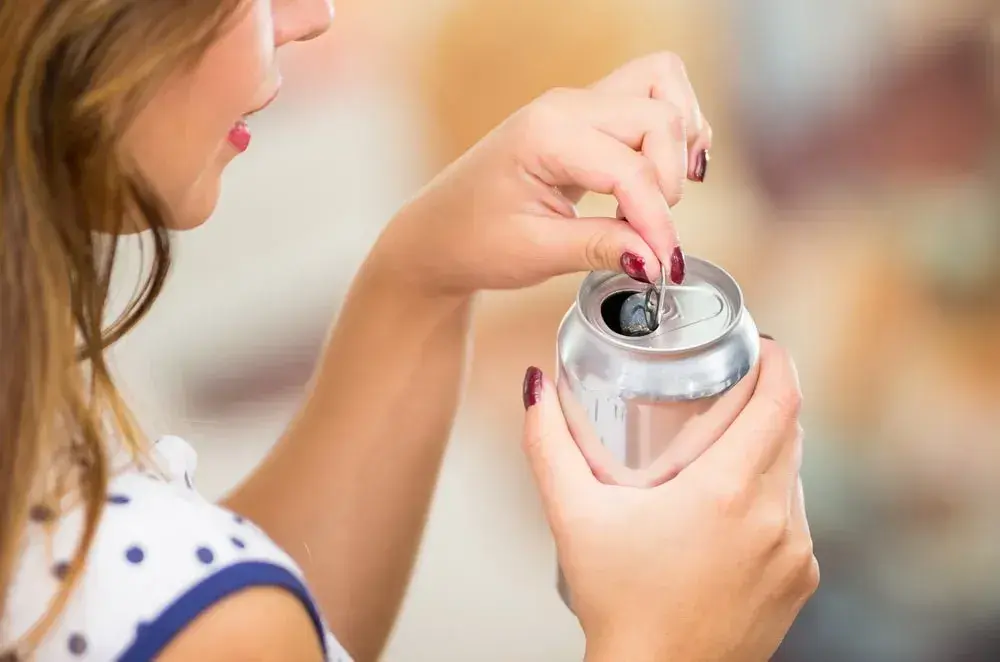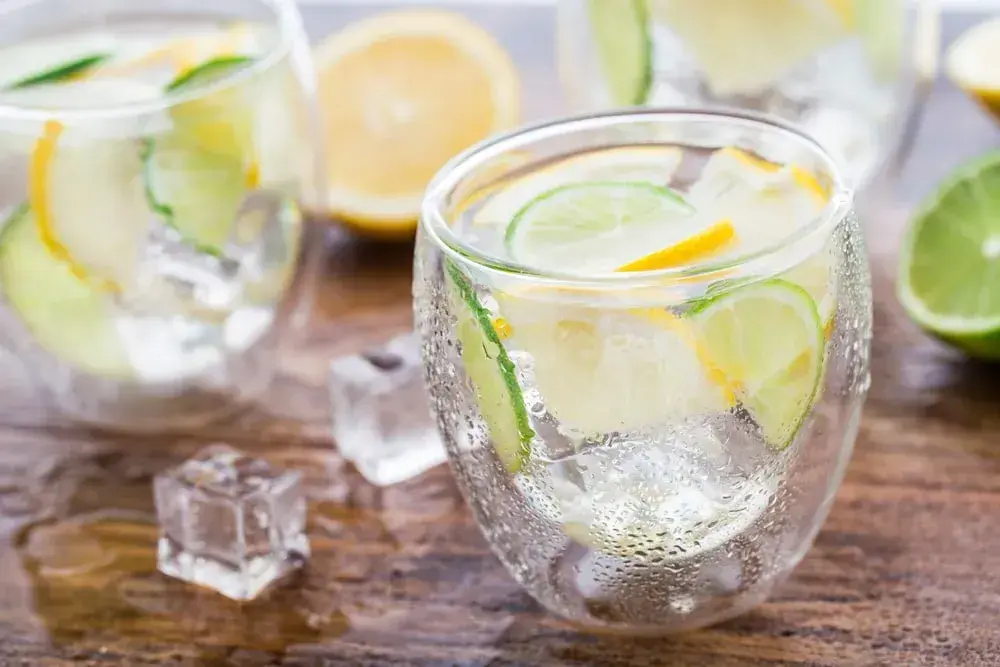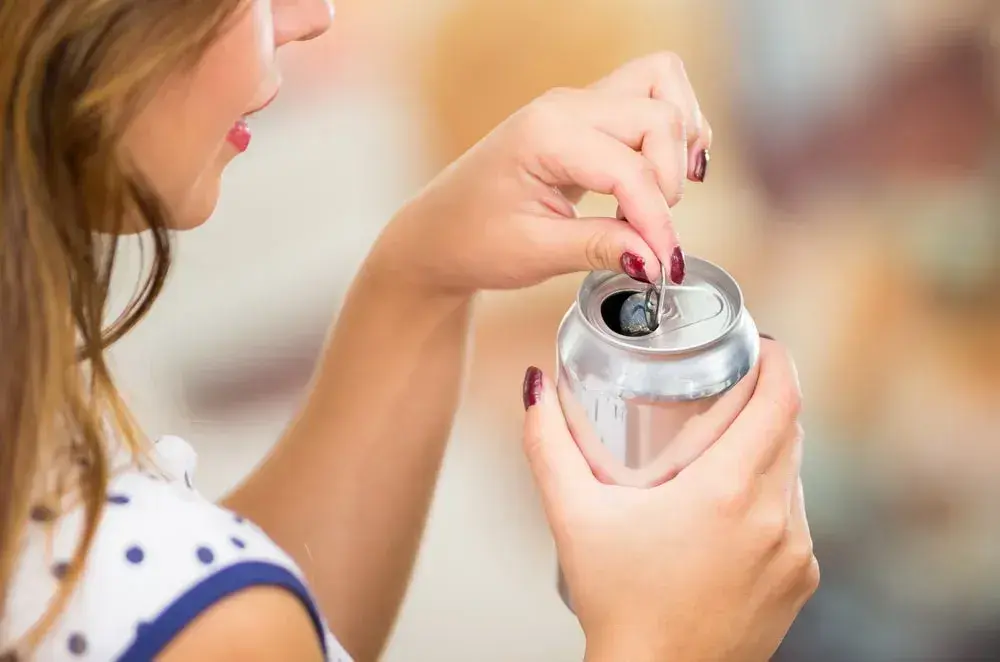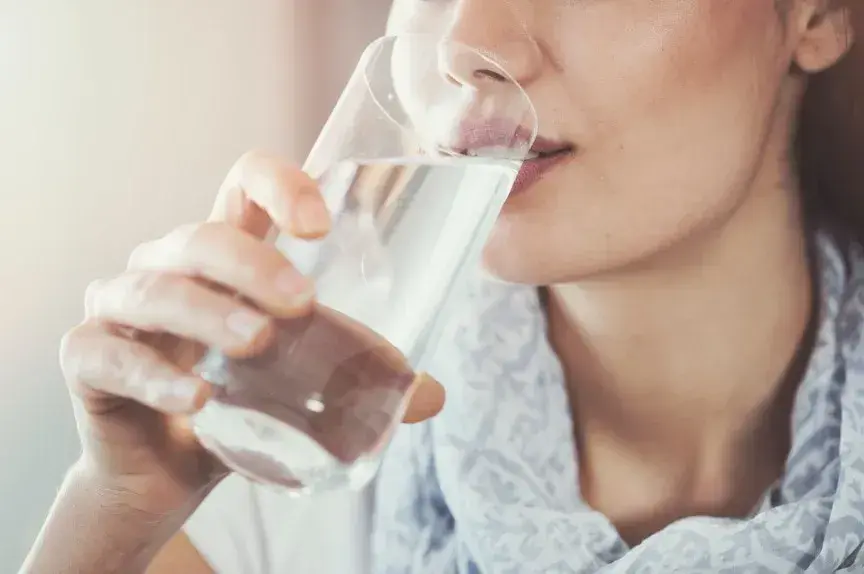
/assets/images/provider/photos/2578591.jpg)
What you drink can have more calories than an entire meal, not to mention loads of sugar, artificial ingredients, and other unhealthy additives. Some of the worst drinks for your body are marketed as “heath drinks”.
It doesn’t help that many beverage labels are misleading. You may think you’re making a healthy choice by choosing a drink that reads “all natural,” but this type of language isn’t regulated by the FDA, and food manufacturers could interpret it any number of different ways. Similarly, a beverage that advertises itself as “sugar free” could be full of dangerous artificial sweeteners.
The best drink to consume is water. But we get it — sometimes water gets really boring. If you’re tired of plain water, or you just want something with a little more flavor, get into the habit of reading labels and identifying unhealthy ingredients. Try to avoid beverages that contain high amounts of sugar, artificial sweeteners, and other additives like high-fructose corn syrup.
The following are some popular but unhealthy beverages to steer clear of.
1. Soda
It should come as no surprise that soda is one of the worst beverages you can choose for your body, whether you’re drinking regular or diet. Both have been linked to weight gain and an increased risk of cardiovascular disease.
Diet soda is filled with chemicals such as artificial sweeteners. Yes, it does contain fewer calories than regular soda, but recent research has linked consumption of artificial sweeteners to health risks such as stroke and dementia.
Regular soda contains high amounts of calories, sugar, and corn syrup. Also, soda has long been associated with diseases such as diabetes, heart disease, weak bones, obesity, and other weight-related conditions.
If you simply can’t give up your soda habit, make every effort to cut back, find healthier alternatives, and eventually cut it out of your diet.
2. Fruit juice
When a beverage contains fruit, everyone automatically assumes it must be a healthy drink. After all, fruit is good for you!
Unfortunately, fruit juice is usually filled with high amounts of sugar and corn syrup, which turns something derived from a very healthy source into one of the unhealthiest drinks you can consume.
Of particular concern is apple juice. That’s because it may contain something called patulin if made from spoiled or low-quality fruits. Patulin is a myotoxin, which is a fungal by-product. Exposure to it can cause neurological, gastrointestinal, and immunological problems. The FDA recommends recommends limiting exposure to patulin in children 1-2 years old, and pregnant women should use care to avoid it as well.
3. Powdered drink mixes
Powdered drink mixes are typically loaded with artificial sweeteners such as acesulfame and sucralose. Acesulfame has been linked to cancer, and recent research published in the Journal of Toxicology and Environmental Health indicates that sucralose may reduce beneficial gut bacteria, inhibit the absorption of medications, release potentially toxic compounds in the body, alter your body’s response to insulin, and even alter your genes.
Drink mixes also often contain food dyes such as yellow 6 and red 40, which are known carcinogens.
4. Low-fat milk
We’ve been told for years to choose low-fat or non-fat dairy products over full-fat dairy. But recent research is bringing these dietary recommendations into question. Studies indicate that people who consume high-fat dairy products actually have a lower risk of diabetes and obesity.
Evidence suggests that when people focus primarily on reducing fat intake, they tend to increase their consumption of sugar and carbohydrates, which the body converts into body fat. And some dietary fat is necessary for certain functions throughout the body and for the absorption of fat-soluble vitamins. Rather than taking a laser focus towards reducing fat in your diet, make more of an effort to consume whole foods that are as close to their natural state as possible, and reduce your consumption of processed, packaged foods.
5. Liquid coffee creamer
Flavored coffee creamers may taste delicious, but many of them are nothing but chemicals such as artificial flavors and sweeteners, preservatives, and thickening agents that may cause inflammation and digestive problems. They also commonly contain partially hydrogenated oils, or trans fats, which have been shown to increase the risk of heart disease and may also impair memory.
Try flavoring your coffee with more natural alternatives. Look for creamers made with coconut milk or almond milk instead of oils and artificial ingredients — even when flavored, these are often as low as 2 grams of sugar per serving. Or try using unsweetened coconut milk with a few drops of flavored stevia.
6. Sweet cocktails
Not all alcoholic drinks are made the same. Especially sweet cocktails.
Sure, they taste great. But they’re loaded with sugar, and the alcohol is absorbed directly into the bloodstream. This increases your blood glucose quickly. Basically, when you consume a sweet cocktail, you’re drinking a liquid candy bar. That can also contribute to the severity of your hangover in the morning.
When drinking alcohol, stick with drinks that are lower in calories. The antioxidants in red wine have been shown to promote numerous health benefits. Limit your alcohol consumption to 1-2 glasses a day.
7. Flavored water
You’d think that since water is so healthy, adding a little flavor to it would be a good thing. In some cases, it can be. Adding fruit to your water can make it taste great and add a boost of beneficial antioxidants.
Unfortunately though, most pre-flavored waters aren’t as healthy as they may appear because they are usually loaded with chemicals. Even flavored water containing “natural flavors” should be regarded with suspicion, because this language can mean a number of different things. Always read ingredients, and avoid anything with sucralose, acesulfame potassium, corn syrup, and MSG.
8. Energy drinks
Energy drinks are notorious for containing artificial colors, flavors, and sweeteners. Don’t buy into the marketing hype — anything loaded with chemicals is not going to provide any health benefits to your body. One of the main ingredients in these drinks is often sucrose — simple sugar — making these drinks no healthier than a soda. They also often contain citric acid, which can damage tooth enamel.
9. Energy shots
You’d think that taking an energy shot would mean you’re downing a shot of liquid health. But just like larger energy drinks, the majority of energy shots are made up of chemicals. Most contain those ubiquitous artificial sweeteners, plus mega amounts of caffeine,
If you’re starting to notice a pattern here, you’re right. While certain guidelines prevent food manufacturers from making unsubstantiated claims on their labels, other regulations are less clear — like that “natural” designation. There’s simply no substitute for getting into the habit of reading ingredients and avoiding anything that contains nasty chemicals.
10. Too much coffee (and fancy coffee drinks)
We love our coffee, and like alcohol, coffee in moderation offers some health benefits. Research suggests that moderate caffeine consumption can help protect brain cells and lower the risk of neurological conditions such as stroke and dementia. However, too much of a good thing can be harmful, and coffee is no exception. Too much caffeine can result in negative effects such as an increased heart rate, heartburn, jitters, anxiety, gastrointestinal distress, muscle twitches, headaches, dehydration, and insomnia.
This holds true of caffeine from all sources, so if you’re drinking coffee in the morning, a soda with lunch, and an energy drink in the afternoon, you’re putting yourself at risk of numerous health issues.
And if you’re ordering fancy flavored lattes topped with whipped cream, you’re basically drinking your dessert. One Starbucks grande Caramel Frappuccino contains 66 grams of sugar — that’s like eating two pieces of chocolate cake.
Make wise choices
Learning what’s in your food — and what to avoid — is an important first step in taking control of your health and adopting habits that will help move you towards your health goals. At Garcia Weight Loss and Wellness Centers, we’re committed to helping our patients build healthy habits that they can maintain for the rest of their lives. If you need help with your weight-loss and wellness goals, contact us today for a no-cost consultation!


